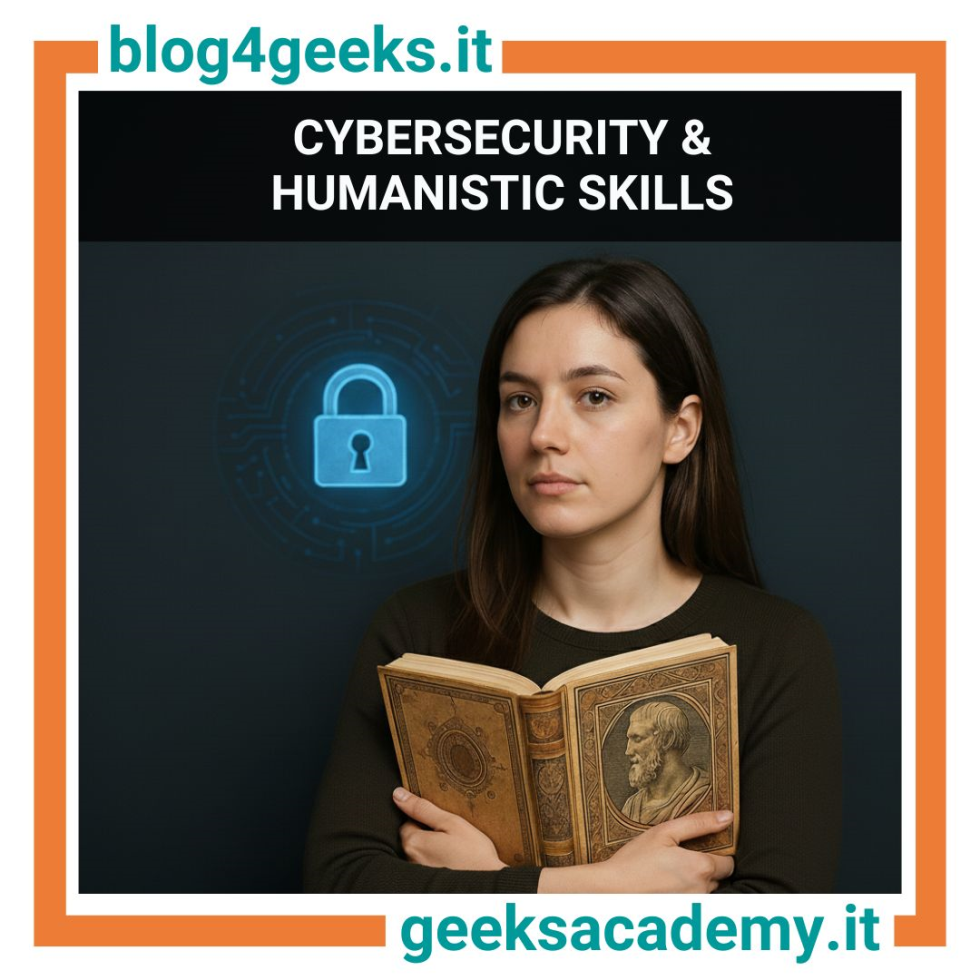
Discover Geeks Academy’s articles on: Blockchain, Coding, Cybersecurity, Cloud, Big Data, Artificial Intelligence, Gaming, Digital Innovation
Introduction
In the era of artificial intelligence, cybersecurity is no longer just about codes and firewalls. The evolution of advanced language models has transformed cybersecurity into a complex field where humanities skills are emerging as critical assets. Philosophy, linguistics, and behavioral psychology are no longer confined to university classrooms but are proving to be essential tools for understanding and countering new digital threats. As highlighted in Stanford HAI’s AI Index Report 2025, AI systems have made significant strides in reasoning and content generation, with models like OpenAI’s o4 mimicking "human" thought partners, yet this progress introduces new vulnerabilities tied to language and human behavior.
Artificial Intelligence and New Security Challenges
Contrary to common belief, artificial intelligence is not replacing cybersecurity experts but redefining their roles. A concrete example is Anthropic’s recent initiative, which launched a competition offering up to $20,000 to anyone who can bypass the safeguards of its language model, Claude. The challenge invites participants to devise jailbreak strategies—techniques to trick AI into generating content it is designed to block.
This competition has exposed an uncomfortable truth: the threat is not purely technical. Those attempting jailbreaks often exploit language ambiguity, leverage subtext, and craft seemingly harmless requests that, when combined, can become dangerous. According to a 2024 Microsoft Security analysis, extended into 2025, these jailbreaks use "human" techniques like social psychology to deceive AI systems, bypassing ethical safeguards and producing harmful content. A 2025 CrowdStrike report adds alarming data: AI-generated phishing emails achieve a 54% click-through rate, compared to 12% for human-written ones, demonstrating how AI amplifies linguistic and psychological manipulation.
When Cybersecurity Becomes a Matter of Language
To tackle these threats, a new generation of professionals is needed. Network experts or programmers alone are no longer enough. Enter humanists with technical skills, capable of identifying vulnerabilities not only in systems but also in language and communication.
Knowledge of psychology, philosophy, linguistics, and semiotics is becoming essential to understand how an AI model can be manipulated. Those who can leverage these disciplines to anticipate textual or social attacks will be pillars of future security. A recent Virginia Tech grant from September 2025 explores this very idea: developing AI frameworks for cross-domain threat detection, integrating humanities perspectives to understand the cognitive dynamics behind attacks. Additionally, the Presidential Panel AAAI 2025 emphasizes the need for interdisciplinary collaboration among AI researchers, psychologists, philosophers, and sociologists to align AI development with human values, preventing ethical drifts in cybersecurity.
Hybrid Skills Are the Future of Cybersecurity
The digital security landscape is increasingly complex and nuanced. The boundaries between disciplines are dissolving, opening new opportunities for hybrid professionals. A humanist who masters technology has the linguistic sensitivity to detect subtle manipulations. Likewise, a technologist with humanities training can better understand the cognitive dynamics behind social engineering attacks.
This synergy between technical and humanistic knowledge represents the future of cybersecurity, where critical and creative thinking will be as vital as coding skills. As reported by MIT News in July 2025, the addition of 14 new faculty members to the School of Humanities, Arts, and Social Sciences, including experts in linguistics and philosophy focusing on semantics and epistemology, reinforces this hybrid vision, preparing professionals for an AI landscape that demands ethical human oversight. A McKinsey report from January 2025 confirms: only 1% of companies are mature in workplace AI use, but hybrid skills—such as those combining philosophical reasoning with AI tools, are key to unlocking productivity and security.
Conclusion
Cybersecurity is no longer just an engineer’s domain. In the AI era, the human mind—with all its complexity—becomes the decisive factor. Humanities skills, once considered "soft," are now proving essential for tackling increasingly sophisticated threats. A recent article in Artificial Intelligence News from September 2025 reinforces this: AI is taking on critical roles in cybersecurity, but it raises questions about accountability and fairness, requiring "SHE AI" principles (Secure, Human, Ethical) that blend technology with humanistic oversight. Those who can combine technology and culture will be at the forefront of the next digital revolution.
This article is an excerpt from the weekly column #11 L’hAI Sentito? – Tech News Pills, hosted by Geeks Academy director Antonio Venece, broadcast on channel 14 Italian TV.